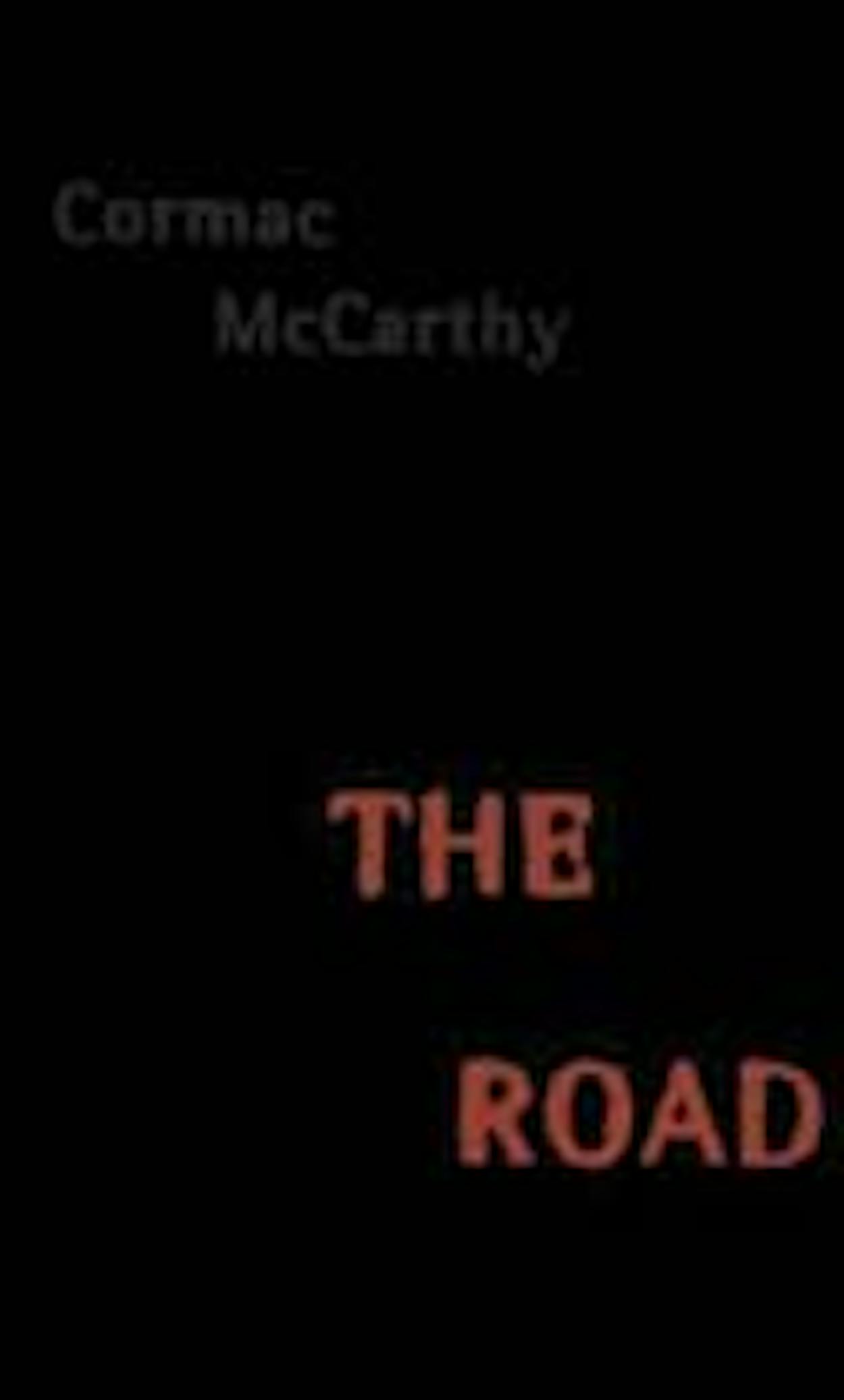First there were explosions, then the world seemed to be on fire, and now there is just the man and the boy hiding in a sheltered wood—father and son, left to travel alone after the boy’s mother opened her wrists in despair. Such is the face of America’s destiny in THE ROAD, CORMAC MCCARTHY’s heart- searing vision of Western civilization in the wake of the apocalypse. McCarthy strips this near-future desolation down to its most elemental components: a nameless, one-parent everyfamily trudging from the mountains to the sea before winter sets in. Place names have lost meaning, and the man and the boy could be anywhere; a faded exhortation to “See Rock City” painted on a barn’s roof suggests Georgia. They share a charred and toxic warscape with a small number of survivors, many of whom have become cannibalistic hunters. Self-proclaimed “good guys,” the two have the simplest of goals: to scavenge for food in abandoned farmhouses and, ironically, never-used fallout shelters and to hide from “bad guys” (in the lad’s understated terms) who would make a meal of them both.
McCarthy chooses not to point fingers or recount the events leading to this state of affairs; it goes, literally, without saying that some form of global political lunacy triggered the bombs. Rather, The Road invites questions and becomes a meditation on both the universal (is man courting Armageddon?) and the personal (whether quitting is an honorable option when there is no future; the man saves two bullets as a grim final solution should prospects become too horrible). McCarthyites, who can be a fanatical bunch, will surely debate how to catalog the author’s tenth novel and its marked shift from his most recent works: There are no echoes of John Grady Cole from McCarthy’s career-defining Border Trilogy (instead the roving man-eaters might well be ghoulish descendants of Lester Ballard, the murderous, cave-dwelling necrophiliac in Child of God), and Mexico and West Texas settings are abandoned in favor of the Tennessee and Appalachian farms, mountains, and rivers of his four earliest books.
Yes, The Road is speculative fiction—pure genre stuff—and postapocalyptic scenarios are well-trod ground. But there is nothing pedestrian about its execution or effect. The prose is pared down to a hard, clipped language, where every sentence—every word—feels hefty and essential. And the father-son duo is as memorable and affecting as any in fiction; you will wake your children and hug their necks. This is a work that will invite superlatives—and “masterpiece” is not too strong a word.







